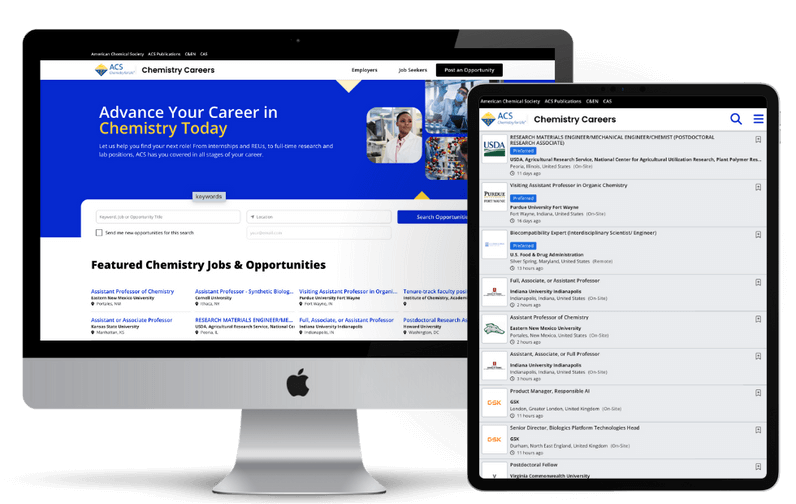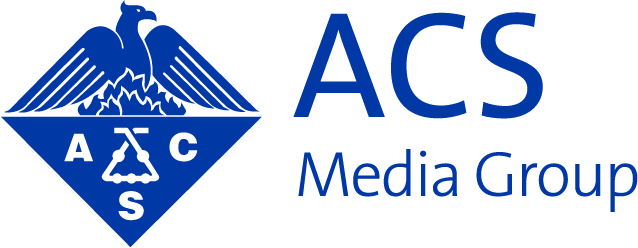Marketers in science organizations often have career stories that feature a fascinating variety of paths. You’ll find people with backgrounds in graphic design, project management, information technology, business development, education, and more. In many cases, people working in this space started out as scientists who made the leap into a science marketing career.

That leap from science to marketing is part of my career story. I had every intention of staying in academia and pursuing research and teaching in chemistry. But during grad school, I discovered a love for science writing and communication. Now, I’m a senior editor with C&EN BrandLab, a custom content studio serving an audience of chemists, chemical professionals, and scientists. Getting here involved internships, freelance work, fellowship opportunities, networking, and a whole lot of experimentation and self-reflection.
Navigating your own science marketing career can be challenging due to the lack of a clear path. So, for those who are just embarking on their careers in science marketing or for those who are established but exploring what might be next, what can you do?
Shane M Hanlon, executive editor of C&EN BrandLab, and I recently spoke about our paths to science marketing at the American Chemical Society’s 2025 Spring meeting. In our Q&A panel, we covered the twists and turns our careers have taken and what we learned along the way.
Science Marketing Career Tips
Below are our three pieces of advice from the panel for people exploring and building careers in science marketing. Whether you’re new to this field or you’re a seasoned professional, we hope this advice can help inspire ideas and uncover new paths for your own career explorations.
1. Follow Your Interests
Both Shane and I went into our Ph.D. programs intending to become professors. But, along the way, other interests caught our attention.

“I realized there was a disconnect between the work I was doing in the field, in academia, and potentially, larger management and policy implications,” says Shane. So, after graduation, he began a policy fellowship working in the US Congress.
But then, Shane realized that he “preferred talking to people, talking about science—talking to scientists and then folks who know nothing about science.”
My own leap from research into marketing first began when I interned as a science writer at a cancer research institute. The job began as a fun side gig that would ultimately help me be a more well-rounded scientist.
But after writing a handful of stories, I also found that I loved talking with other scientists and translating their work into something a non-technical audience would understand and enjoy. It soon became clear that that this was where I wanted to shift my career after graduation.

You’re not stuck in a box. So try something, do something different. Maybe it won’t be exactly what you want. Maybe it’ll be exactly what you want.”
– Shane M Hanlon, PhD, Executive Editor of C&EN BrandLab
2. Flex Your Soft Skills
It’s a bit of a giveaway to say that to succeed in marketing and communications, you need to be a good communicator. But what does it actually mean to be a good communicator?
For me, a key communication skill that I’ve had to learn and hone over the years is giving and receiving feedback.
As a science writer, I’ve had to learn to receive and incorporate editor and stakeholder feedback without letting my own ego get in the way.
Now in my role as an editor, I am often in the position of giving feedback to writers, designers, or clients. I need to be able to describe what’s missing from or working well in a piece and doing so clearly and productively.
Shane adds that if you’re in the midst of a career transition—say from science research to product marketing—many of your existing skills can translate directly to your new role. Sometimes it just takes a bit of creativity or feedback from a mentor to connect your existing roles and responsibilities to a new job.
3. Lean into Your Network
I wouldn’t have the job I have today if it wasn’t for my network. Once I realized that I wanted to shift from academia into science writing, I began setting up informational interviews. I talked with comms and marketing folks at my university and alumni who worked as science journalists.

“When you cold call someone, the worst they can do is either say no or ghost you,” says Shane, “So the stakes actually aren’t that high” and building a network in this way can only be a positive for your science marketing career.
Later, when I was actively applying to jobs, I set up short meetings with people at organizations I was interested in working with and kept in touch with people I met during interviews, whether I took or accepted the job.
I also invested heavily in maintaining a more personal network. I had excellent mentors from my internship and fellowship programs who helped me understand how to apply to jobs outside of academia. They reviewed resume drafts, helped me practice for interviews, sent me jobs they thought I’d be interested in, and connected me with hiring managers they knew.
When you find opportunities to make deeper connections in your network, lean in.


















